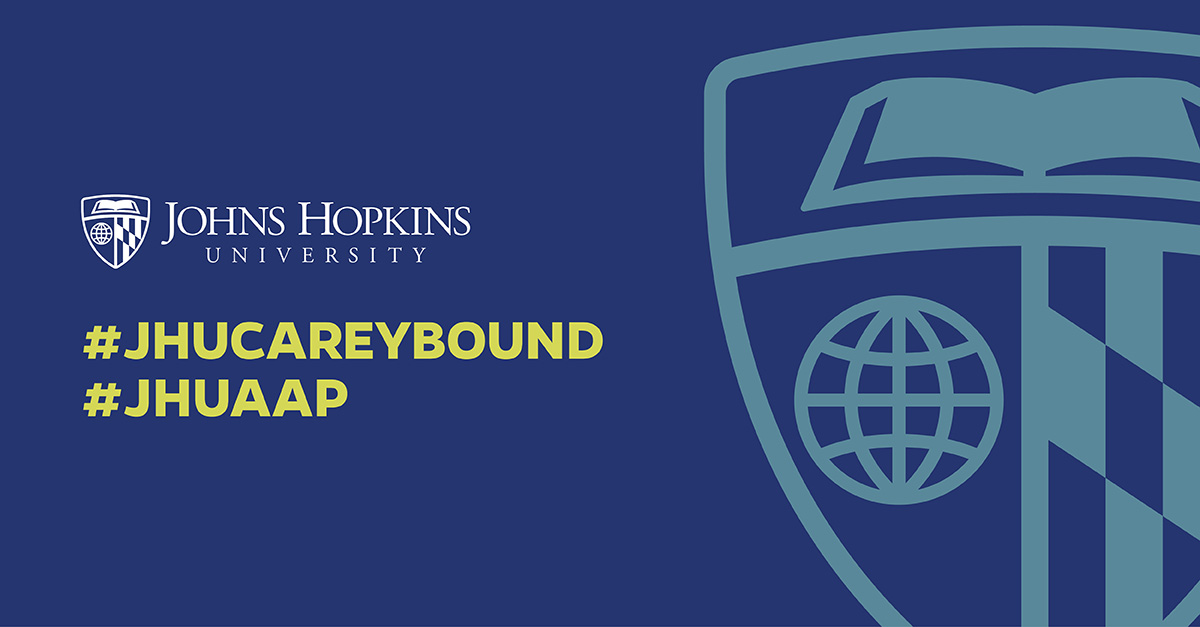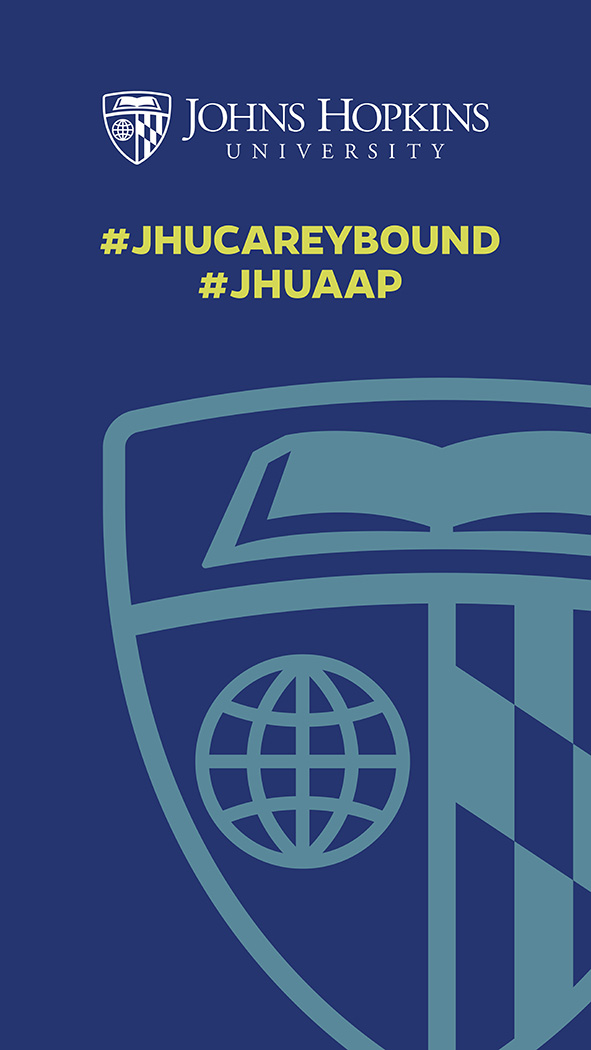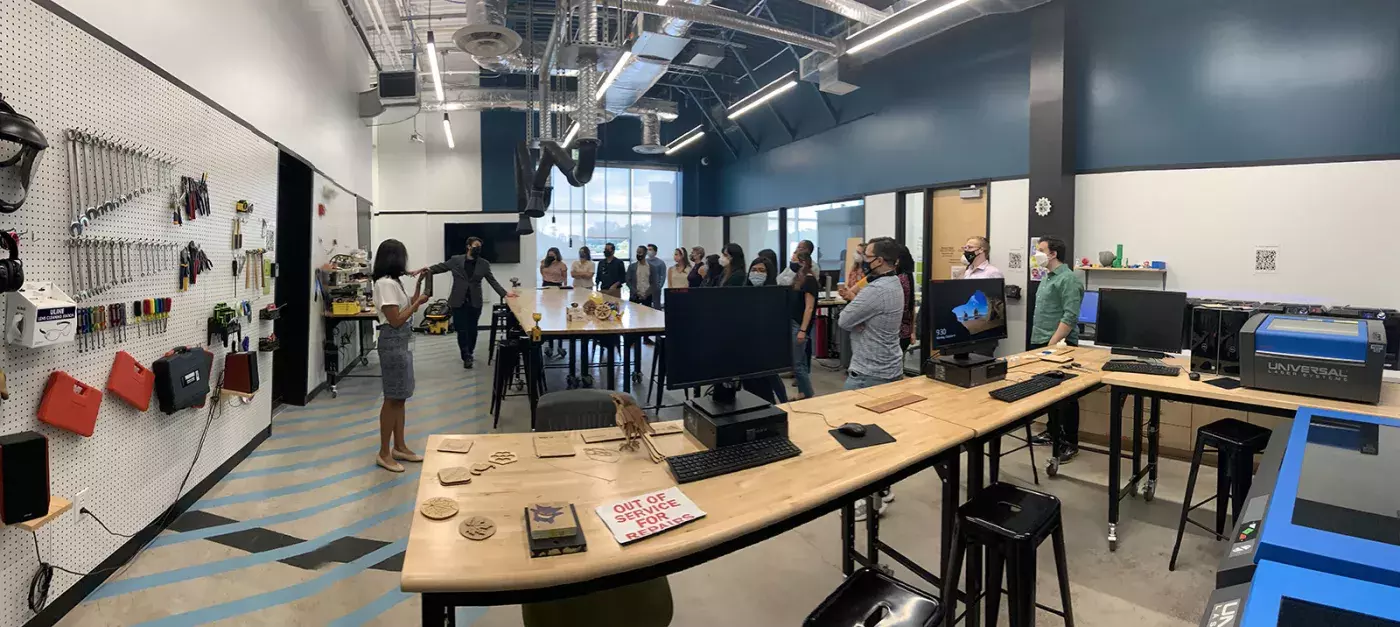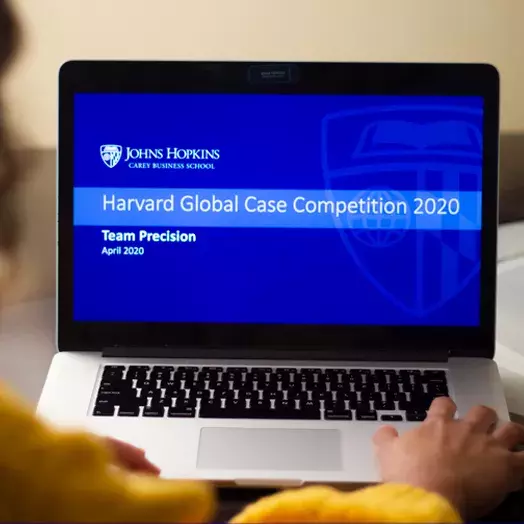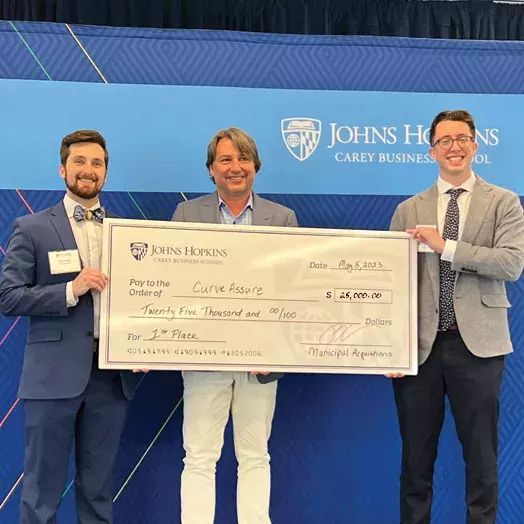Johns Hopkins Carey Business School and Krieger School of Arts and Sciences
Welcome to Johns Hopkins

Congratulations on your admission to Johns Hopkins Carey Business School and Johns Hopkins Krieger School of Arts and Sciences!
The Johns Hopkins community is full of driven individuals who are committed to making a positive impact in the business world. Our part-time programs are designed to balance your education with your personal and professional commitments, with the same rigorous curriculum you’d expect from a top business school. The program seamlessly blends the flexibility of online learning with in-person experiences in the vibrant setting of Washington, D.C. We look forward to helping you build for what’s next through hands-on learning opportunities and access to our diverse network across Johns Hopkins University of nearly 260,000 industry leading alumni.
If you have any questions, please reach out to the AAP Admissions Office by email at aapadmissions@jhu.edu or by phone at 844-417-0874
Welcome to Carey and Krieger!
Share your excitement!
Have you made your decision to join us at Johns Hopkins? Click on the image(s) to download and share your #JHUCareyBound and #JHUAAP announcement on social media. Don’t forget to tag us @JHUCarey and @JHUAAP to make it official!
